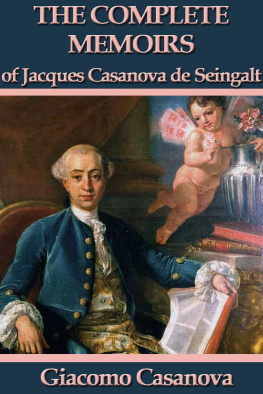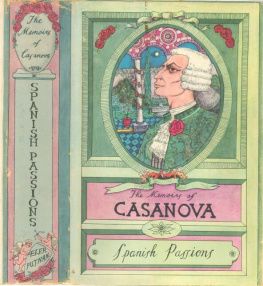LIST OF ILLUSTRATIONS
Marguerite de ValoisEtching by Mercier
Bussi d' AmboisePainting in the Versailles Gallery
Duc de GuisePainting in the Versailles Gallery
Catherine de' MediciOriginal Etching by Mercier
Henri VI. and La FosseusePainting by A. P. E. Morton
A Scene at Henri's CourtOriginal Photogravure
PUBLISHER'S NOTE.
The first volume of the Court Memoir Series will, it is confidently anticipated, prove to be of great interest. These Letters first appeared in French, in 1628, just thirteen years after the death of their witty and beautiful authoress, who, whether as the wife for many years of the great Henri of France, or on account of her own charms and accomplishments, has always been the subject of romantic interest.
The letters contain many particulars of her life, together with many anecdotes hitherto unknown or forgotten, told with a saucy vivacity which is charming, and an air vividly recalling the sprightly, arch demeanour, and black, sparkling eyes of the fair Queen of Navarre. She died in 1615, aged sixty-three.
These letters contain the secret history of the Court of France during the seventeen eventful years 1565-82.
The events of the seventeen years referred to are of surpassing interest, including, as they do, the Massacre of St. Bartholomew, the formation of the League, the Peace of Sens, and an account of the religious struggles which agitated that period. They, besides, afford an instructive insight into royal life at the close of the sixteenth century, the modes of travelling then in vogue, the manners and customs of the time, and a picturesque account of the city of Liege and its sovereign bishop.
As has been already stated, these Memoirs first appeared in French in 1628. They were, thirty years later, printed in London in English, and were again there translated and published in 1813.
TRANSLATOR'S PREFACE.
The Memoirs, of which a new translation is now presented to the public, are the undoubted composition of the celebrated princess whose name they bear, the contemporary of our Queen Elizabeth; of equal abilities with her, but of far unequal fortunes. Both Elizabeth and Marguerite had been bred in the school of adversity; both profited by it, but Elizabeth had the fullest opportunity of displaying her acquirements in it. Queen Elizabeth met with trials and difficulties in the early part of her life, and closed a long and successful reign in the happy possession of the good-will and love of her subjects. Queen Marguerite, during her whole life, experienced little else besides mortification and disappointment; she was suspected and hated by both Protestants and Catholics, with the latter of whom, though, she invariably joined in communion, yet was she not in the least inclined to persecute or injure the former. Elizabeth amused herself with a number of suitors, but never submitted to the yoke of matrimony. Marguerite, in compliance with the injunctions of the Queen her mother, and King Charles her brother, married Henri, King of Navarre, afterwards Henri IV. of France, for whom she had no inclination; and this union being followed by a mutual indifference and dislike, she readily consented to dissolve it; soon after which event she saw a princess, more fruitful but less prudent, share the throne of her ancestors, of whom she was the only representative. Elizabeth was polluted with the blood of her cousin, the Queen of Scots, widow of Marguerite's eldest brother. Marguerite saved many Huguenots from the massacre of St. Bartholomew's Day, and, according to Brantome, the life of the King, her husband, whose name was on the list of the proscribed. To close this parallel, Elizabeth began early to govern a kingdom, which she ruled through the course of her long life with severity, yet gloriously, and with success. Marguerite, after the death of the Queen her mother and her brothers, though sole heiress of the House of Valois, was, by the Salic law, excluded from all pretensions to the Crown of France; and though for the greater part of her life shut up in a castle, surrounded by rocks and mountains, she has not escaped the shafts of obloquy.
The Translator has added some notes, which give an account of such places as are mentioned in the Memoirs, taken from the itineraries of the time, but principally from the "Geographie Universelle" of Vosgien; in which regard is had to the new division of France into departments, as well as to the ancient one of principalities, archbishoprics, bishoprics, generalities, chatellenies, balliages, duchies, seigniories, etc.
In the composition of her Memoirs, Marguerite has evidently adopted the epistolary form, though the work came out of the French editor's hand divided into three (as they are styled) books; these three books, or letters, the Translator has taken the liberty of subdividing into twenty-one, and, at the head of each of them, he has placed a short table of the contents. This is the only liberty he has taken with the original Memoirs, the translation itself being as near as the present improved state of our language could be brought to approach the unpolished strength and masculine vigour of the French of the age of Henri IV.
This translation is styled a new one, because, after the Translator had made some progress in it, he found these Memoirs had already been made English, and printed, in London, in the year 1656, thirty years after the first edition of the French original. This translation has the following title: "The grand Cabinet Counsels unlocked; or, the most faithful Transaction of Court Affairs, and Growth and Continuance of the Civil Wars in France, during the Reigns of Charles the last, Henry III., and Henry IV., commonly called the Great. Most excellently written, in the French Tongue, by Margaret de Valois, Sister to the two first Kings, and Wife of the last. Faithfully translated by Robert Codrington, Master of Arts;" and again as "Memorials of Court Affairs," etc., London, 1658.
The Memoirs of Queen Marguerite contained the secret history of the Court of France during the space of seventeen years, from 1565 to 1582, and they end seven years before Henri III., her brother, fell by the hands of Clement, the monk; consequently, they take in no part of the reign of Henri IV. (as Mr. Codrington has asserted in his title-page), though they relate many particulars of the early part of his life.
Marguerite's Memoirs include likewise the history nearly of the first half of her own life, or until she had reached the twenty-ninth year of her age; and as she died in 1616, at the age of sixty-three years, there remain thirty-four years of her life, of which little is known. In 1598, when she was forty-five years old, her marriage with Henri was dissolved by mutual consent,she declaring that she had no other wish than to give him content, and preserve the peace of the kingdom; making it her request, according to Brantome, that the King would favour her with his protection, which, as her letter expresses, she hoped to enjoy during the rest of her life. Sully says she stipulated only for an establishment and the payment of her debts, which were granted. After Henri, in 1610, had fallen a victim to the furious fanaticism of the monk Ravaillac, she lived to see the kingdom brought into the greatest confusion by the bad government of the Queen Regent, Marie de Medici, who suffered herself to be directed by an Italian woman she had brought over with her, named Leonora Galligai. This woman marrying a Florentine, called Concini, afterwards made a marshal of France, they jointly ruled the kingdom, and became so unpopular that the marshal was assassinated, and the wife, who had been qualified with the title of Marquise d'Ancre, burnt for a witch. This happened about the time of Marguerite's decease.
















